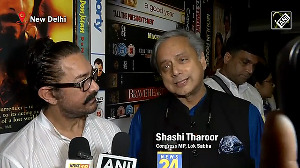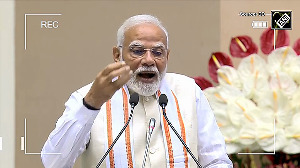India's secular society has found an admirer in the Archbishop of Canterbury, who has said the country's religious pluralism can be be a model to European countries which are currently deadlocked between bids for theocracy and efforts to completely privatise faith.
"The plural secularist model of India is not a bad model for the Western European societies who are looking to get out of a deadlock, " Dr Rowan Williams, the head of Anglican Community worldwide, told reporters before delivering the Chevening lecture "Pluralism and the dialogue of religions" in New Delhi on Friday. The Archbishop is currently on a two-week visit , a "mission of goodwill" to India to celebrate the 40th anniversary of the Church of North India as well as look into the grassroot service of the Christian community in India.
In his lecture the Archbishop said, "India has consistently tried to define a secularism that is not hostile to multiple religious identities."
"Religion in the West has become a matter of private choice... People see only alternative as either theocracy or secularism, both I think are bad," he said. In his lecture
The Archbshop proposes a political pluralism which he describes as an "argumentative democracry" and a religious pluralism which both acknowledges the reality of history but also "that there are dimensions of [religious] identity that we create as well as inherit. After visiting Kolkata and Nagpur the head of the church of England is proceeding to Bangalore, Chennai, Vellore and Thiruvanthapuram. The Archbishop will be joined later by his theologian wife Jane Williams, who was born and spent her early years in Thiruvananthapuram.
Describing his visit to Kolkata, he said since he was on a tight schedule he could not visit Orissa but had "met a group of people in Kolkata... who described in detail their plight." The Archbishop had in 2008 expressed profound distress at the attack against Christians in Orissa following the murder of Hindu leader Swami Lakshmananda Saraswati.






